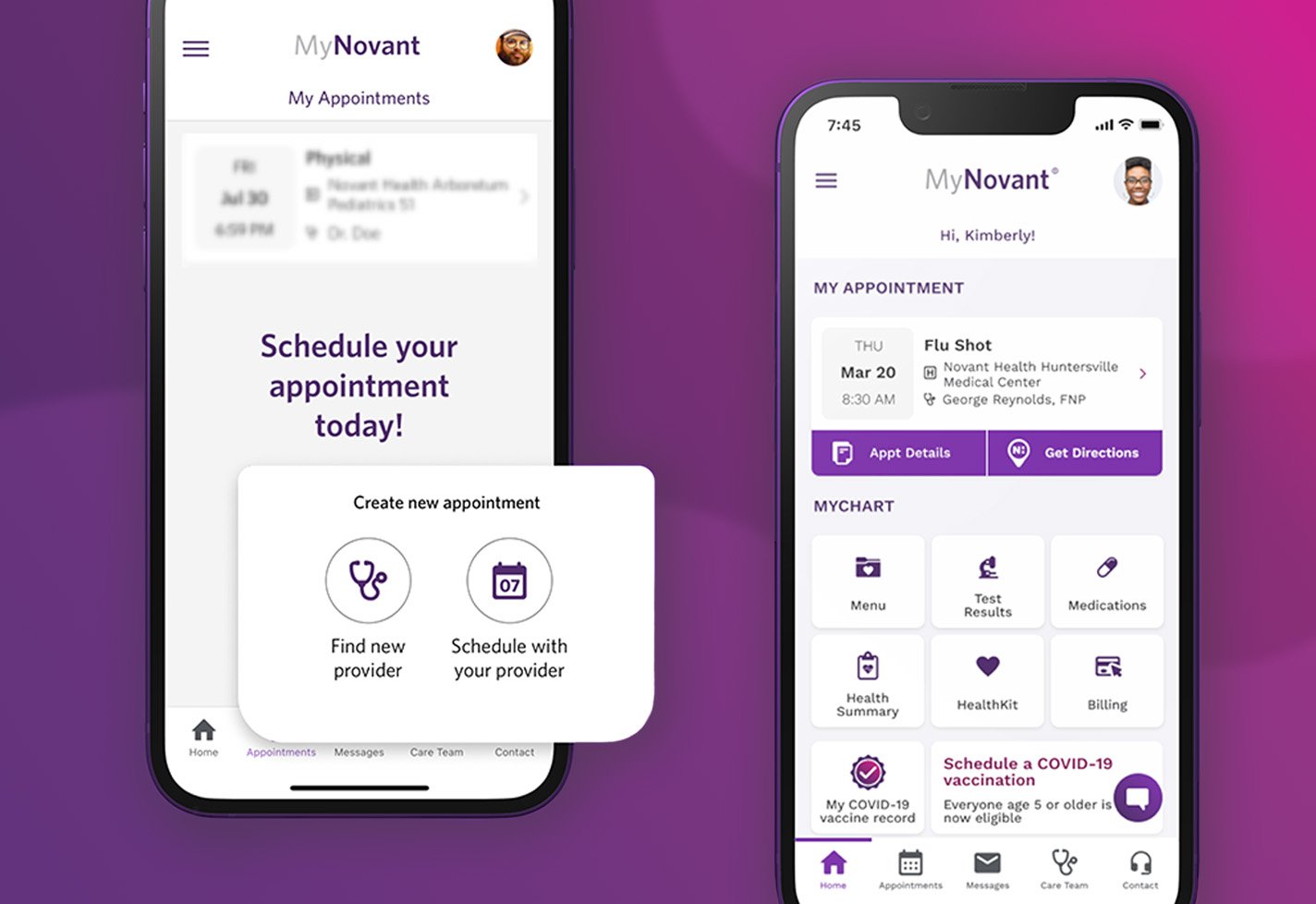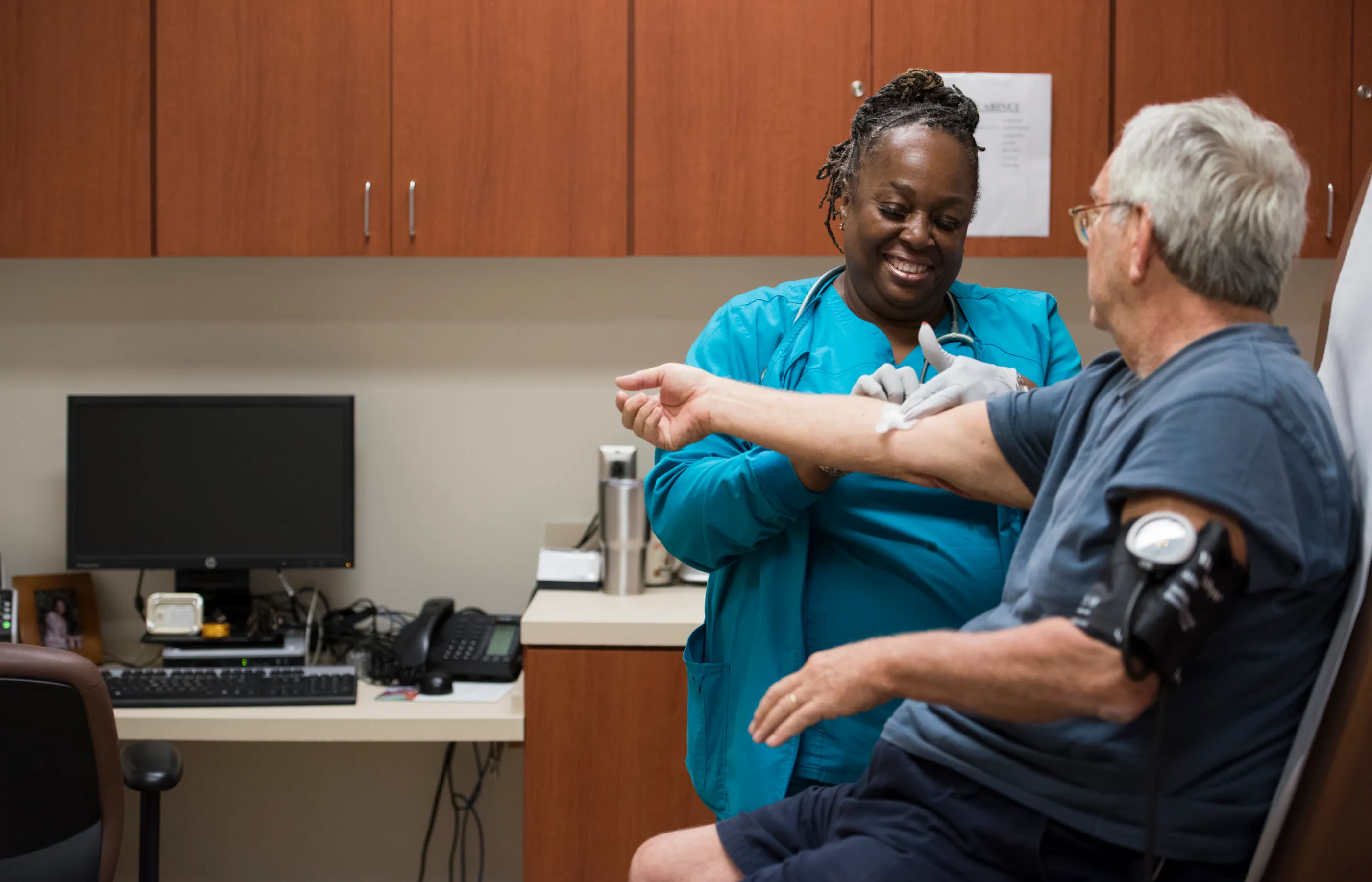Vascular Disease
Committed to improving your vascular health.
The vascular specialists at Novant Health are leaders in treating vascular disorders with innovative procedures. You'll receive a treatment plan that is individualized to your specific needs.
Take the First Step
If you believe you are at risk for heart disease, it’s time to take the first step in improving your cardiac health. Visit your primary care provider to discuss your heart health to see if you need a referral to one of our heart specialists. If you do not have a primary care provider, follow the steps below to get started:
Step 1:
Visit your Primary
Care Provider
Step 2:
Discuss your
concerns
Step 3:
Your provider gives
a referral
Step 4:
Choose the right
specialist for you
Advanced treatment for vascular conditions

The vascular specialists at Novant help are here to restore blood flow and find the best treatment plan for vascular issues, including:
- Peripheral Arterial Disease (PAD) or Peripheral Vein Disease (PVD) – a narrowing or blockage of blood vessels from the heart to the legs caused by plaque. These blood vessels are called arteries.
- Deep Vein Thrombosis (DVT) – a blockage caused by a blood clot, usually in the veins in the legs. Veins bring blood flow from the arms and legs back to the heart.
- Aneurysm – a bulge or bubble in a blood vessel.
- Claudication - pain experienced during or after exercise (mostly in the calf) due to inadequate blood flow to muscles in the leg or other limbs.
- Popliteal Artery Entrapment Syndrome – a condition caused by the calf muscle “trapping” the main artery behind the knee because it is in the wrong position or larger than usual.
- Hemodialysis Access – surgically creating a crucial gateway between the arteries and veins in the kidneys to enable efficient kidney failure treatment with hemodialysis.
- Fibromuscular Dysplasia (FMD) – a rare vascular disorder affecting medium-sized arteries, particularly in the renal and carotid arteries. This often is managed medically and does not require surgery.
- Mesenteric stenosis/ischemia – a condition where the blood flow to the intestines is restricted due to narrowed arteries (stenosis), causing insufficient oxygen supply.
- Thoracic Outlet Syndrome (TOS) – blood vessels or nerves in the thoracic outlet (the area between your collar bone and first rib) are compressed.
- Giant Cell Arteritis (GCA) – an inflammatory disorder affecting medium to large arteries, commonly in the head, especially the temporal arteries, causing headaches, jaw pain, and vision problems.
What causes vascular disease?
The risk factors for vascular disease include elevated cholesterol, high blood pressure and diabetes. Some people are genetically predisposed to vascular disease, and those who smoke or use tobacco are at higher risk. Vascular disease can also be caused by an infection, blood clot, injury or as a side effect of certain medications.
What are symptoms of vascular disease?
Symptoms vary depending on the type of vascular disease but may include pain, cramps, numbness or tingling in the extremities, swelling, discoloration, and severe stomach pain after eating. If left untreated, vascular disease can lead to serious issues such as stroke, heart attack and death.
How is vascular disease diagnosed?
Diagnosis usually begins with a physical examination and a thorough medical history review. Depending on your symptoms, your physician may order blood work or imaging tests to look inside your blood vessels. These tests might include a vascular ultrasound or an angiogram, where a small catheter is inserted into an artery to look for blockages or narrowing.
Vascular Disease Treatment
Who treats vascular disease?
The path to vascular disease treatment may begin with an internist or primary care physician, who then refers you to a vascular specialist. Vascular surgeons specialize in treating vascular diseases outside of the heart or brain. Cardiologists and cardiac surgeons treat vascular issues in the heart, while neurologists and neurosurgeons focus on conditions in the brain.
Vascular surgeons
Our vascular surgeons practice a team-based approach. They may often includes interventional cardiologists, cardiothoracic surgeons, or wound care specialists on your care team. Many vascular surgeons perform endovascular surgery, and some are double-certified in general surgery.

MyNovant app
With the MyNovant app, it's never been easier to manage your health. You can schedule appointments, view test results, refill prescriptions and even have virtual visits right from your computer or smartphone. Available on the Apple App Store and Google Play.
